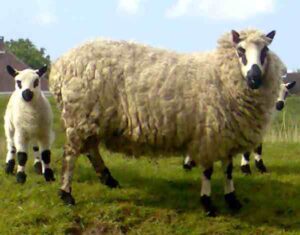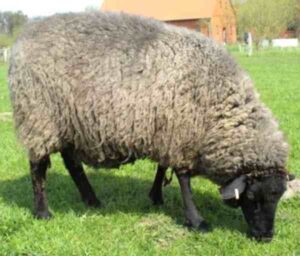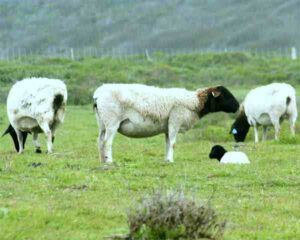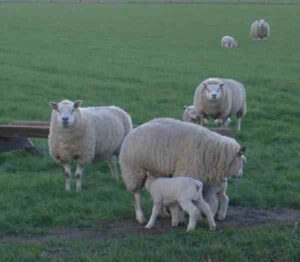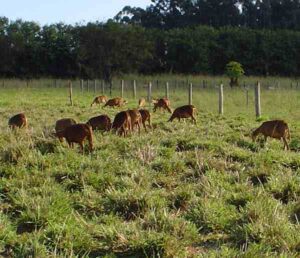Sheep is a very common and popular farm animal. And like all other farm animals, sheep also has gender differences. They have both males and females. And she sheep is a female sheep which is also known as ‘ewe’. All the sheep genders have special importance and specific roles in both small scale and commercial sheep farming business.
So, learning about she sheep or the ewes is very important. Ewes play a critical role in the lifecycle of sheep, from reproduction to meat, milk and wool production. And ensuring their good health and welfare is essential for successful sheep farming business.
What is the meaning of she sheep?
She sheep is a female sheep, which is a very valuable asset of a sheep farm. It is called ewe. Having she sheep in your farm is very important especially if you want to produce lambs.
What are the importance of she sheep?
She sheep’s reproductive roles are essential for maintaining sheep populations. They are also very important for the production of wool, meat and milk.
Characteristics
She sheep are easily characterized by their sturdy body, short legs and a broad and rounded face. Their body build and size can vary depending on the breed. For example, the Merino is a small and more compact sheep breed, while the Suffolk is a large and more robust sheep breed. The she sheep have broad and rounded face with a gentle expression, although the shape of the face can vary depending upon breed. They have large, expressive eyes and ears. And the ears may vary in shape and size depending upon breed. Some have erect, while others have dropping ears. Average weight of the she sheep also vary depending upon the breed, ranging between 30 to 115 kg.

Reproduction
She sheep reach maturity and become ready for breeding at around 6-12 months of age. Although, the exact age for being mature can vary based on some factors such as the sheep breed and environmental factors. They mate with rams during specific breeding season. And after successful mating the she sheep become pregnant. They generally have a gestation period of approximately 145 to 150 days. Although, exact gestation period can vary slightly based on the breed and the number of lambs being carried.
Depending upon the breed, she sheep generally give birth to 1-3 lambs at a time. The lambing process is critical. And they generally exhibit strong maternal instincts. They take care of their offspring actively. They generally clean their lambs and help them to stand and start nursing shorty after birth. They generally provide milk to their lambs. And the milk of a she sheep is highly nutritious and rich in antibodies. They often protect their lambs from predators and environmental threats.
Behavior
She sheep are social animals that prefer to be in groups. They have a natural grazing behavior and spend most of their day time grazing. Their diet consists mostly of grass and other greens. They are naturally attentive mothers and they typically form strong bonds with their lambs. She sheep tend to move together as a flock for protection and social cohesion. There can be some level of aggression among the she sheep. Although, they are less aggressive than the male sheep or rams.
Caring
Taking good care of the she sheep is very important. And their caring tasks involves providing them with nutritious food, monitoring their health, and fulfilling their environmental needs. Try to provide them a well balanced and nutritious diet that includes a mix of forage and supplements. Grass or hay are good forage for them, and grains and minerals are great supplements. And always try to provide them with adequate amount of clean and fresh drinking water as per their demand.
Vaccinate the animals timely and take extra care of the pregnant and nursing she sheep. Regularly perform deworming treatments and external parasite control. Also inspect their hooves and trim them regularly to prevent lameness and related issues.
Uses
She sheep are used for many different purposes. They are great for wool production, and are generally sheared annually. They are also used for meat and milk production. Some she sheep are also used in breeding for genetic improvement purpose. They are excellent grazers and occasionally used for controlling pasture.
She sheep are excellent farm animals, and you can consider keeping some in your farm if you love sheep. They are lovely and excellent for raising for meat, milk, and wool. Consider sharing this article with your friends and family members if you find this article helpful. Good luck!
